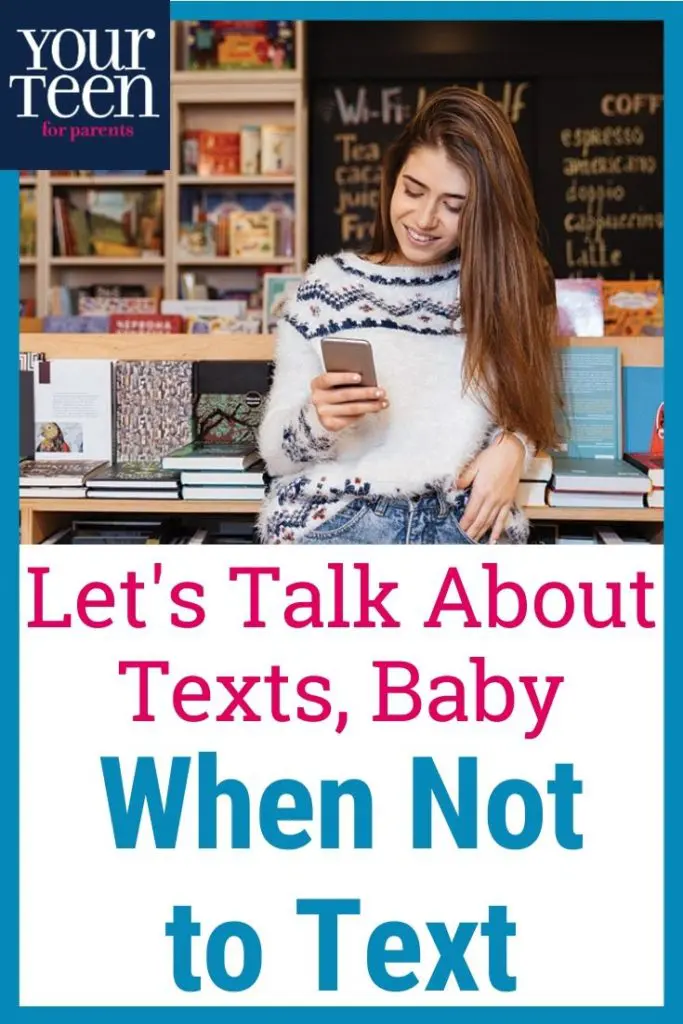Like most people, I love texting. It’s an efficient and convenient way to ask a quick question, coordinate plans, or share information. It’s also great fun to have a group chat where we can banter away, discuss issues, and even engage in a little smack talk. Plus, very little effort is required to send a quick message.

No wonder teenagers love it, too. As I watch my own teen sit on our red couch texting with friends, completely engaged and sometimes giggling, I picture the days when my 16-year-old self spent hours doing the same thing on the telephone.
But texting does have its limits: The times when I’m texting with one of my kids and I finally write, “Call me.” The times when another is asking for advice and I say, “I think you should talk in person instead of over text.”
Because our teenagers grew up with texting, they tend to rely on it for all communication. However, it is not always the most appropriate means of expression. The hard part is that there is no hard and fast list of when to text and when to talk.
When Not to Text: A Primer for Teens
Delivering good news:
Sure, it’s easy to text the news that you got an “A” on your test or that coveted part in the play—and your pride shines through via exclamation points and smile emojis. Though I could easily reply with “Congratulations!” (confetti and all), I’d much rather hear the excitement in your voice and see the delight on your face. Joy is so much better live.
Sharing confidential information:
Personal news—good or bad—is always better shared face-to-face. Not only can you provide context and answer questions, but this approach also eliminates the possibility of text messages being shown to or shared with others.
Feeling the feels:
When confrontation looms, this is the hardest but most important time to stop texting and start talking. No matter how vulnerable you may feel, talking is necessary for true understanding and reconciliation. Most importantly, having a conversation will reduce the chances of further misunderstandings.

Some may argue that one virtue of texting is that teenagers can pause and think before they comment. While this is true, facial expressions and tone are such an important part of hard conversations, and even the best texts don’t always convey their true meaning.
The bottom line? Texting is a great communication tool, but it’s not always the right one.





